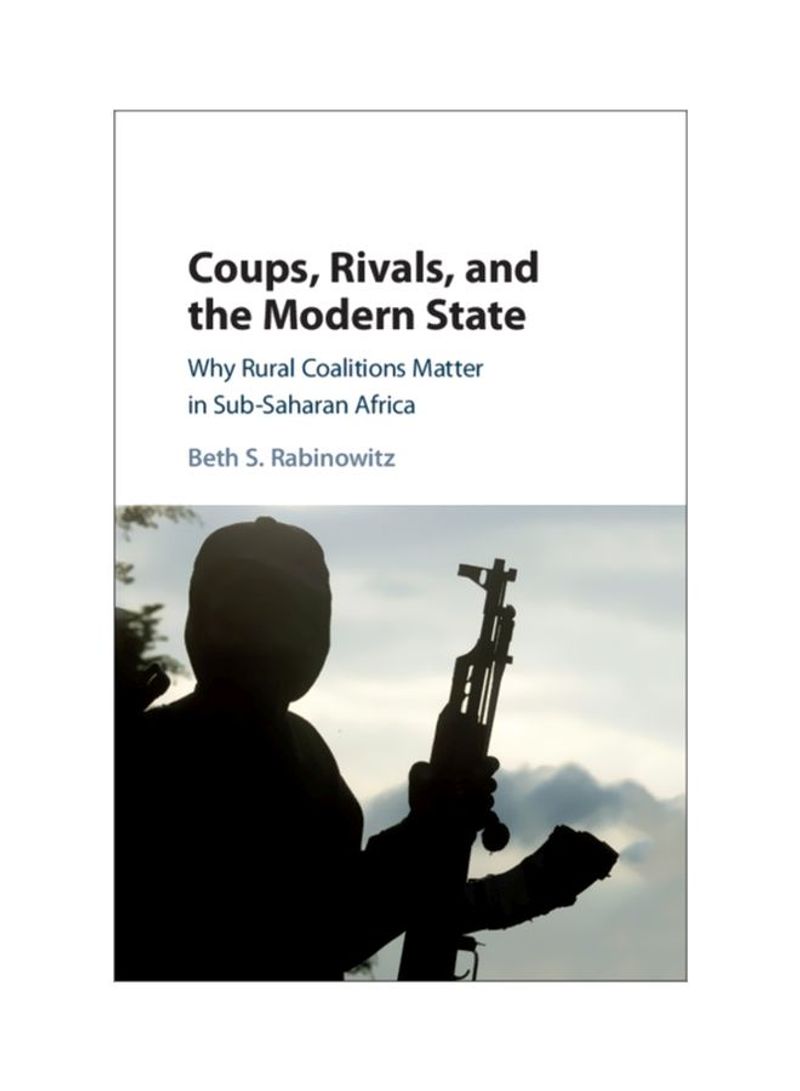Coups, Rivals, And The Modern State: Why Rural Coalitions Matter In Sub-Saharan Africa Hardcover
Recommend
Sort by
Rating
Date
Specifications
Grade
New
Author 1
Beth S. Rabinowitz
Book Description
State development in Africa is risky, even life-threatening. Heads of state must weigh the advantage of promoting political and economic development against the risk of fortifying dangerous political rivals. This book takes a novel approach to the study of neopatrimonial rule by placing security concerns at the center of state-building. Using quantitative evidence from 44 African countries and in-depth case studies of Ghana and Cote d'Ivoire, Rabinowitz demonstrates that the insecurities of the African state make strategically aligning with rural leaders critical to political success. Leaders who cultivate the goodwill of the countryside are better able to endure sporadic urban unrest, subdue political challengers, minimize ethnic and regional discord, and prevent a military uprising. Such regimes are more likely to build infrastructure needed for economic and political development. In so doing, Rabinowitz upends the long-held assumption that African leaders must cater to urban constituents to secure their rule.
ISBN-13
9781108420464
Language
English
Publisher
Cambridge University Press
Publication Date
15 Mar 2018
Number of Pages
320
About the Author
Beth S. Rabinowitz is Assistant Professor at Rutgers State University of New Jersey. Her research focuses on regime strategies and political stability in sub-Saharan Africa.
Editorial Review
Through extensive research and perspicacious theorizing, Beth S. Rabinowitz has developed an innovative and compelling argument about the significance of a 'rural political strategy' for statebuilding in Africa. Rulers who build coalitions in the countryside are less prone to coups and more likely to develop their economies than leaders who focus on urban areas and consolidating power. Building on a deep tradition in the study of African politics, Rabinowitz breaks new ground in the study of urban-rural dynamics by demonstrating empirically how a rural political strategy contributes to stability. Her book is a key contribution for those who wish to understand the structural foundations of politics in Africa.' Scott Straus, University of Wisconsin, Madison 'Beth S. Rabinowitz brings territorial politics back into the study of postcolonial African states. This valuable study is an important counterweight to conventional stories of 'urban bias' in African politics, and a historical corrective to work that takes 1990s multipartism as the 'beginning of politics'. Rabinowitz's argument that strong agricultural policies stabilized some of the continent's most successful regimes is developed in a structured comparison of Ghana and Cote d'Ivoire, and then extended across a set of 135 governments (in 44 countries) in postcolonial Africa. A new and important argument.' Catherine Boone, London School of Economics and Political Science



